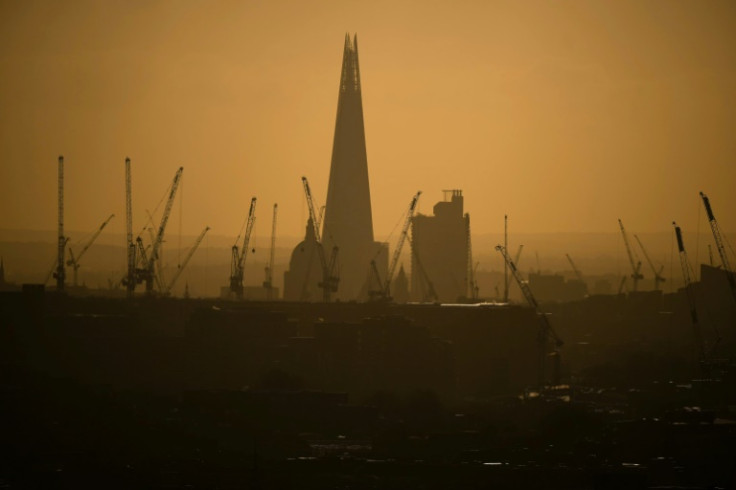UK Recession Risks Linger Despite Brighter Growth Data

The UK economy performed slightly better than thought in the final quarter of last year, revised data showed Friday, but analysts warned of recession risks as inflation remains sky high.
The Office for National Statistics (ONS) said the economy grew 0.1 percent in the October-December period after an initial estimate showing flat output.
Either way, the UK narrowly avoided falling into recession at the end of 2022 despite a cost-of-living crisis.
"The economy performed a little more strongly... than previously estimated, with later data showing telecommunications, construction and manufacturing all faring better than initially thought," noted ONS director of economic statistics, Darren Morgan.
He added that households saved more in the last quarter, with finances boosted by government support to pay sky-high energy bills.
"Meanwhile, the UK's balance of payments deficit with the rest of the world narrowed, driven by increased foreign earnings by UK companies, particularly in the energy sector," he added.
Oil and gas prices soared last year as supplies tightened following the invasion of Ukraine by key energy producer Russia.
That largely contributed to inflation soaring worldwide in 2022, with UK consumer prices reaching a four-decade high above 11 percent.
After dipping at the end of last year and start of 2023, British inflation rose back to 10.4 percent in February.
"The final quarter GDP data suggested the economy was even more resilient in 2022 than we previously thought, as the government absorbed some of the hit to households from high inflation," Ruth Gregory, deputy chief UK economist at Capital Economics, said following Friday's data.
"But we still think that about two-thirds of the drag of higher interest rates has yet to be felt and that the economy will slip into a recession involving a peak to trough fall of about 1.0 percent this year."
Other economists believe the UK will avoid recession in 2023, matching a prediction from the government.
The Bank of England, which has aggressively raised its interest rate several times over more than a year in a bid to cool inflation, has expressed hope the UK will swerve recession, which refers to at least two quarters of contraction in a row.
Separate data Friday from major mortgage provider Nationwide showed UK house prices slid 3.1 percent year-on-year in March, as BoE interest-rate hikes took their toll.
That was the biggest decline since 2009 when the global financial crisis was still in full flow.
Retail lenders tend to match the central bank's increases to borrowing costs, resulting in higher repayments on home loans.
With inflation still elevated, Britain on Friday said its minimum wage would jump by a record 9.7 percent from Saturday.
April also sees the country's state pension leap by a record amount, at more than 10 percent.
It comes as Britain continues to face mass strike action by thousands of public and private sector workers battling for pay rises that match the surge in inflation.
The latest walkout Friday saw the start of a 10-day strike by about 1,400 security guards at Heathrow airport, forcing the cancellation of several flights to and from London's main hub.
© Copyright AFP 2024. All rights reserved.




















